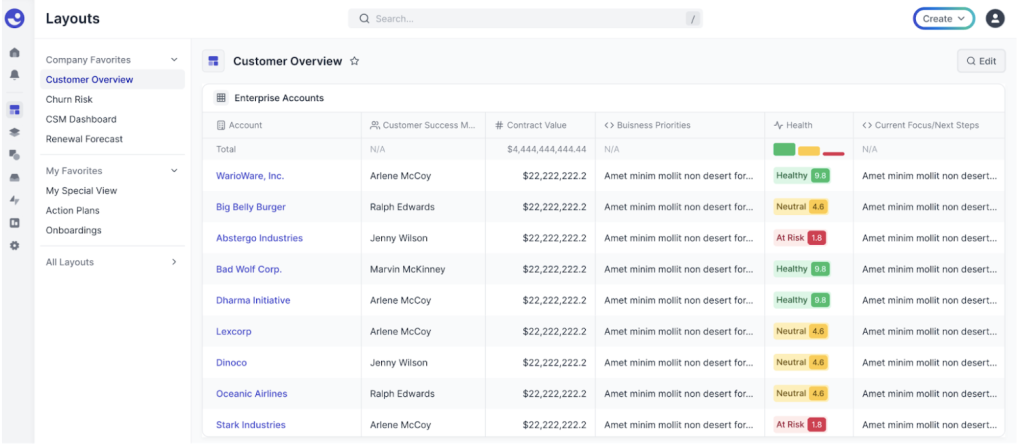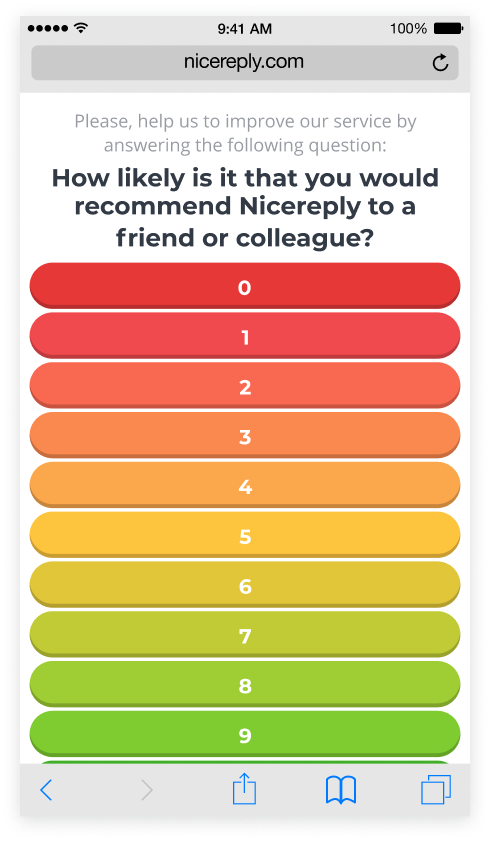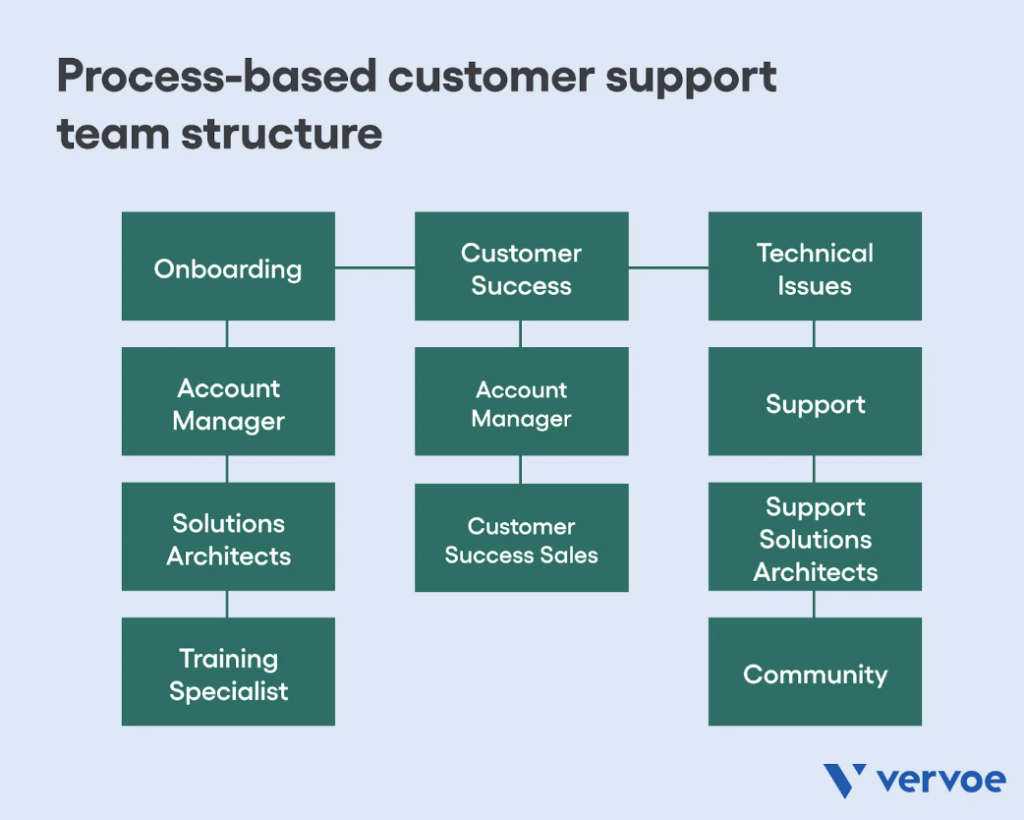A strong customer success team must be built consistently and with the right tools. In this article, we will tell you how to do it.
Every business knows that customer success is key to maintaining loyal customers and ensuring positive word-of-mouth marketing.
For that reason, building a solid customer success team is essential for your business success. The customer success team helps customers get the most out of your product or service and ensures they are happy with their purchase.
But it can be much more than that. Successful customer relations go beyond just getting customers up and running; it’s about ensuring they are happy and continue to be a valuable part of your business over the long term.
In this post, we’ll share tips for developing a strong customer success team to help you improve customer retention and lifecycle.
Start your day
with great
quality
content
1. Create the Perfect Employee Onboarding Process
Ideally, you want your new hires to hit the ground running and be productive members of your team from day one. But to do that, you need to have a well-defined onboarding process.
Here are a few key things to remember when creating an onboarding process for customer success teams:
First, it’s essential to make sure that the new employee understands the company’s products and services. This can be done through a combination of online training modules, hands-on experience with the products, and one-on-one mentorship from a senior member of the team.
Next, ensure that the new employee understands the customer’s needs and how they can handle customer feedback. This can be done through customer support training, which will help the new employee learn how to communicate effectively with customers and understand their issues.
You can also explain to them the company culture. You might arrange an orientation or cultural training session to educate them about the company’s background, values, and how they are integrated into daily operations. In addition, meeting current workers will provide them with insight into what it’s like to work there. Finally, providing ample moral support to new employees as they transition into their key roles is essential. You can also include regular check-ins with their customer success manager, access to senior team members for mentorship, and plenty of resources to help them learn about the company. We’ll talk about this in the next section.
2. Build a knowledge resource
Giving your team the tools and resources they need to succeed is essential. This includes everything from training on your product or service to customer support materials like case studies and whitepapers to contact information for key stakeholders within your company.
The goal is to equip your team with everything they need to focus on helping customers achieve their goals.
Your knowledge resource can be a webpage or document containing all the information they need about the product or service. It can include how to set up and use the product, troubleshoot common problems, and contact information for support.
Additionally, having a straightforward process for documenting and tracking customer interactions is helpful.
For example, if you’re selling a SaaS product, you may give your customer success team a guide to SaaS marketing, covering your business’s whole mental, emotional, and behavioral customer journey. This will help the new employee get up to speed quickly on the ideal customer’s history and needs.
This resource can be updated as needed to contain the latest information. It can also be shared with other company teams to understand what the customer success team does and how they can support them.
Finally, customers should be able to reach out to your team at any time and receive a quick response. So, you should include resources for CRM systems like the call center system, access to customer insights, and training on how to use these tools effectively.
3. Track KPIs through the Customer Success Report Card
A customer success report card highlights areas where customers may need further support.
The first step in progress tracking through the customer success report card is identifying which KPIs to track. This will vary depending on your business and what you are trying to achieve. Still, some common KPIs for customer success include:
- Customer churn – the percentage of customers who leave a company in a given period.
- Customer lifetime value – An estimated value of how much total revenue a business can get from one client.
- Customer satisfaction – customers’ feelings about the quality of a product or service they receive.
- Net promoter score – A metric that measures how loyal, satisfied, and interested customers are in a company.
Try a free 14-day trial. No credit card is needed.
Once you have identified the KPIs you want to track, you need to create a way to measure them. You can use various tools, such as a spreadsheet or dedicated customer success software like Planhat, Guidecx, and Catalyst.
For instance, Catalyst’s custom dashboards, as shown below, feature the health score and customer success member accountability.

This will help you better understand how your customer success efforts impact your business. Also, you can identify areas where the customer success team is doing well and areas with room for improvement.
4. Improve planning strategies
Planning and organizing your customer success team can be complex. However, you can follow a few planning strategies to help you build a successful customer success team.
- Identify the goals of the customer success team – what are the specific customer goals that need to be achieved? What are the milestones that need to be reached? Answering these questions will help you determine each team member’s essential skills and experience.
- Identify the right people for the team – The essential skills and qualities of a successful customer success team member are empathy and good communication, and problem-solving skills. You’ll also want to look for people with experience in your industry and a deep understanding of your product or service.
- Create a process for working with customers – For example, you can segment your customers and create a customer success team for each. This team will be responsible for providing the best possible experience to customers in that segment.
That process should also include how customers are onboarded, the support they receive, and how their accounts are managed. You can take an idea from this example of a structured customer support team that operates according to a process model.
Last but not least, it is vital to track progress. As stated before, you may monitor KPIs using a customer success report card.
Project management tools can also help you track and manage your team’s progress and identify areas where additional support may be needed. There are lots of these tools on the market. However, you will find great comparison reviews to help you pick the right platform for your needs.
Also, regular communication can help identify issues early on so they can be addressed quickly. Creating a safe space for feedback, including customer feedback, will help you make the necessary adjustments to your strategies for customer success.
Conclusion
Building a solid customer success team is essential for any business that wants to thrive. By following these tips, you can create a successful team to help your business retain its customers and grow its reputation.
A robust and cohesive customer success team will ensure that your customer base is happy and continues to be valuable assets to your company.










